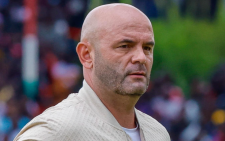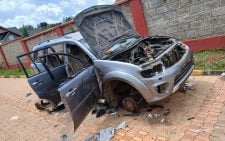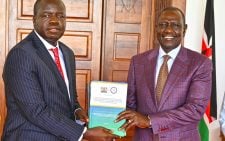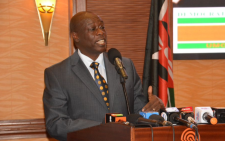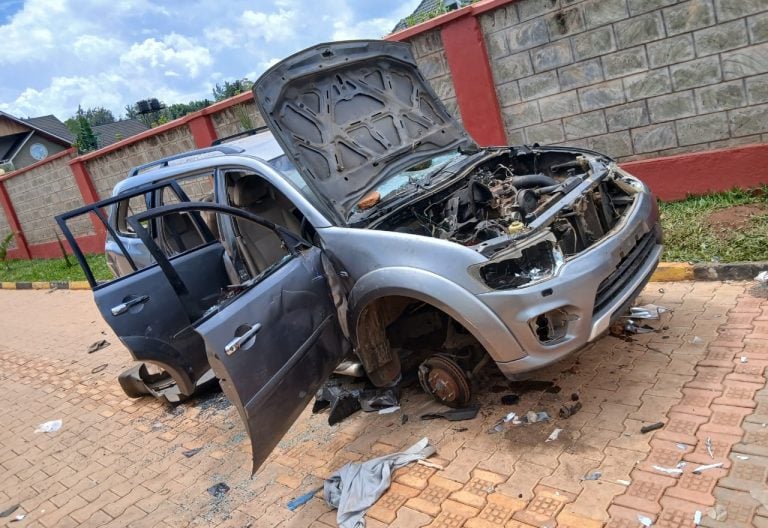Compensation: You’ve forsaken us, 1998 bomb victims tell State
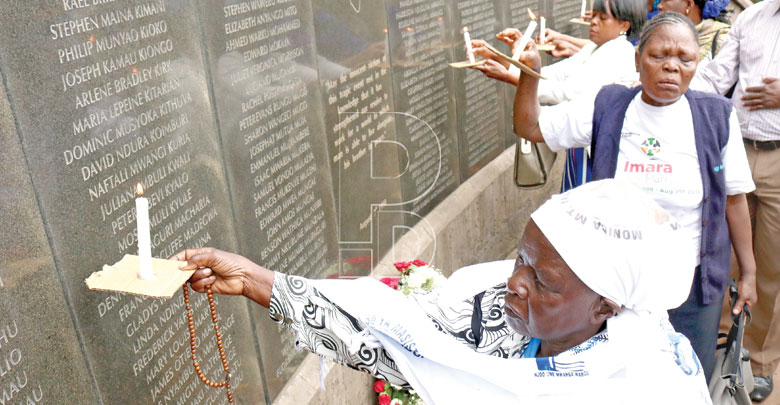
Survivors and families of victims of the 1998 US Embassy bombing in Nairobi have urged the Kenyan and US governments to compensate them for damages.
Speaking during the 21st anniversary of the attack at the Bomb Blast Memorial Park yesterday, the victims accused the two governments of abandoning them.
They also urged Directorate of Criminal Investigations (DCI) boss George Kinoti and the Director of Public Prosecutions (DPP) Noordin Haji to investigate if any compensation was made and later embezzled.
Victims representative Ali Mwadama said they want to know the truth and get a closure over the matter. He said they would seek audience with President Uhuru Kenyatta to air their grievances.
“We want the DCI and DPP to investigate if the money was released and went to people’s pockets. When the President comes back from Jamaica, we will organise go visit State House and present our case to him,” he said.
The Nairobi blast was one of two simultaneous attacks on the US embassies in Kenya and Tanzania. The then Osama bin Laden-led al-Qaeda claimed responsibility for the twin blasts that claimed more than 200 lives and left more than 5,000 people injured.
National and county government officials skipped the event save for a representative of Nairobi Woman Representative Esther Passaris. US embassy officials also gave the event a wide berth. However, Ambassador Kyle McCarter and US Under Secretary of State for Political Affairs David Hale had laid wreaths at the park on Tuesday.
Rescue operations
Former Kenya Defence Forces officer Johnson Mureithi was among those who attended. He was court-martialed and dismissed from service for leaving DoD headquarters without permission on the fateful day to undertake rescue operations.
“I feel so much pain and at times I prefer not to talk about it. I was Chief Warrant Officer. I arrived here around 10.45am after the attack. I rescued many people and I fractured my left leg. But when I went back to DoD I was charged for leaving without permission,” he said.
Sheikh Hassan Ali, a victim, blamed the widespread radicalisation of youths on decaying societal moral fabric.
“Upbringing of our children is the problem. We are not instilling values into them. In the past, we children belonged to the community not individual parents. Today, parents cannot allow their children to be disciplined by a member of the community or even other guardians. That is why our youths are attacking people all over,” he said.
No compensation
After the attack, United States Agency for International Development (USAID) made payments amounting to almost $45 million (Sh4.5 trillion) to cater for medical expenses to the families of 173 Kenyans killed or injured in the explosion.
However, Kenyans unaffiliated with the US Embassy in Nairobi have never had any form of compensation for the damages they suffered in the attack.
In a ruling by a US-based court in 2011, families and victims of the attack were axed from the compensation. Judge John Bates awarded the damages based on formulae that included Sh255 million for emotional injuries, Sh425 million for severe physical injuries, and Sh595 million or more for those blinded and made quadriplegics.
The victims had sued the governments of Iran and Sudan under the Foreign Sovereign Immunities Act for allegedly providing material and technical support to terrorists.

